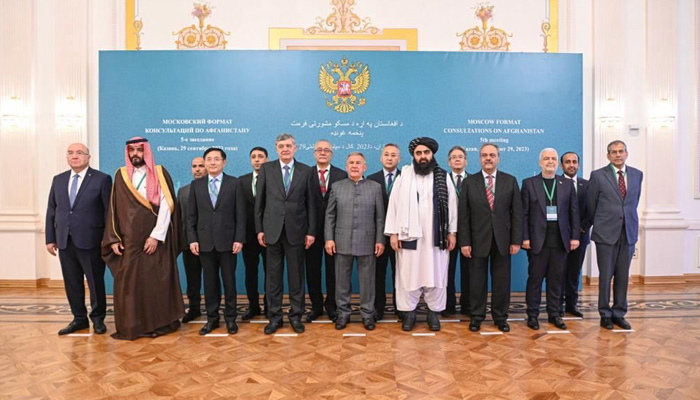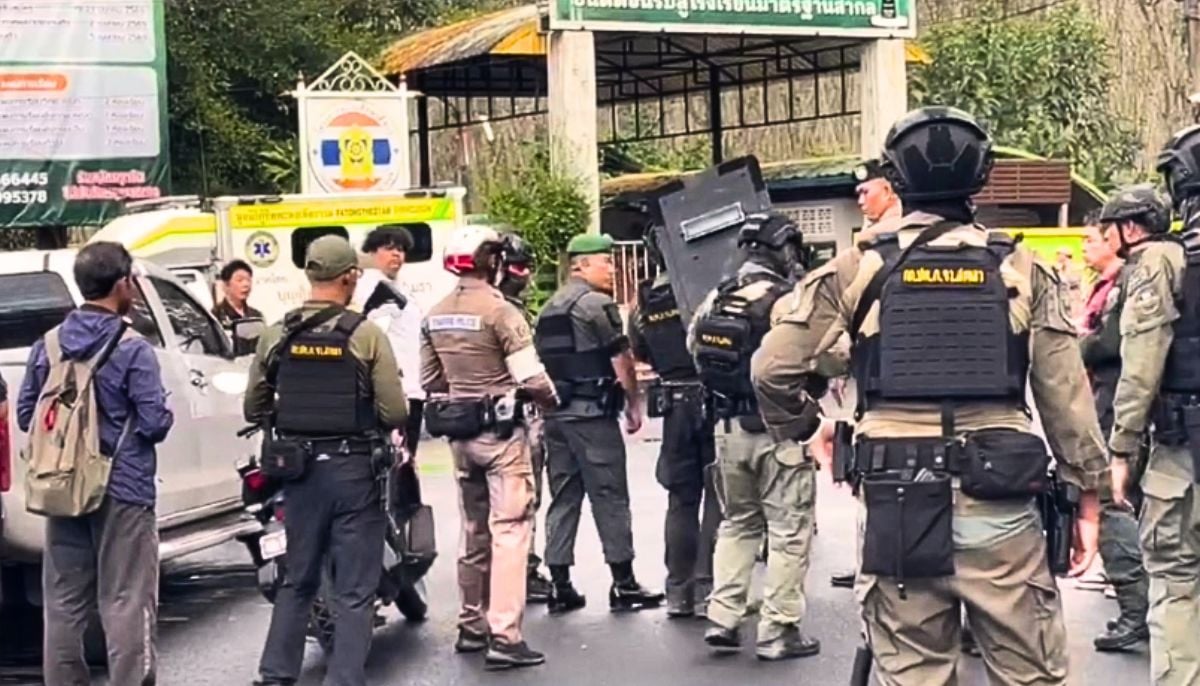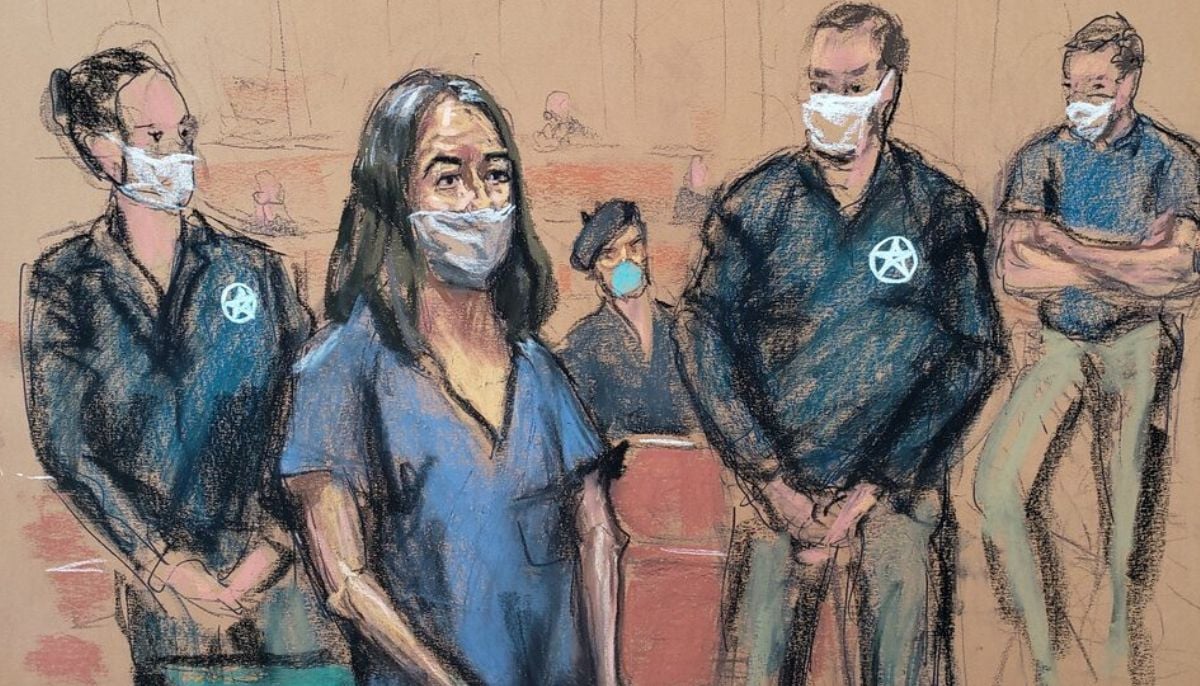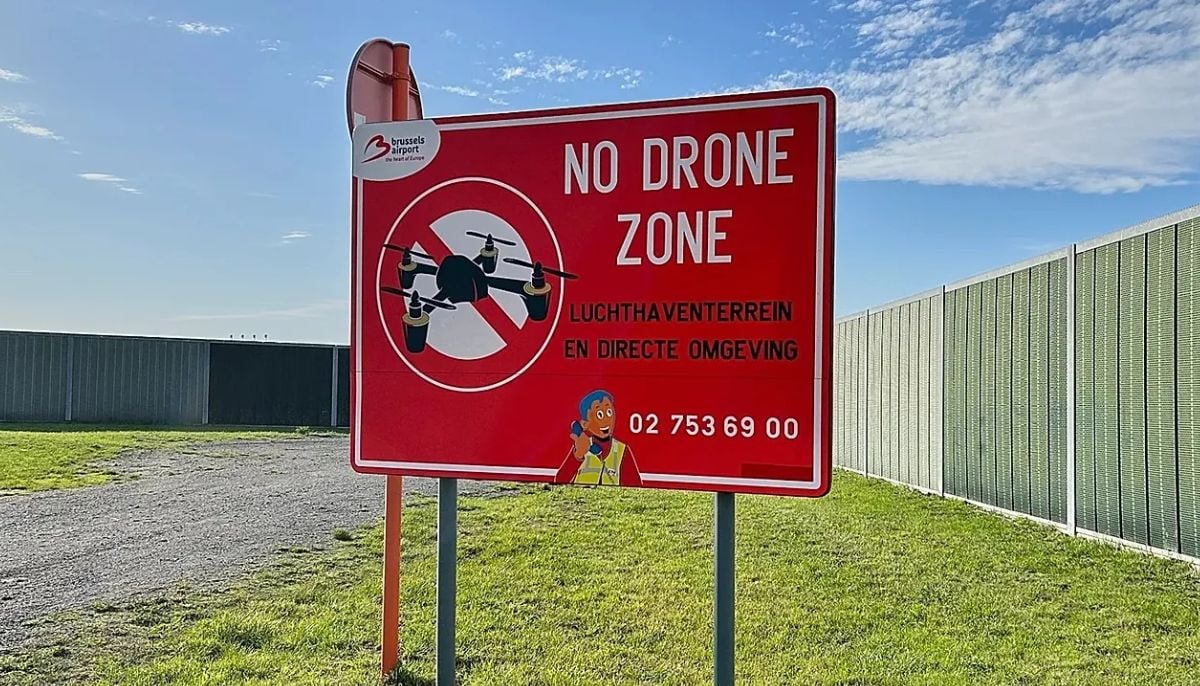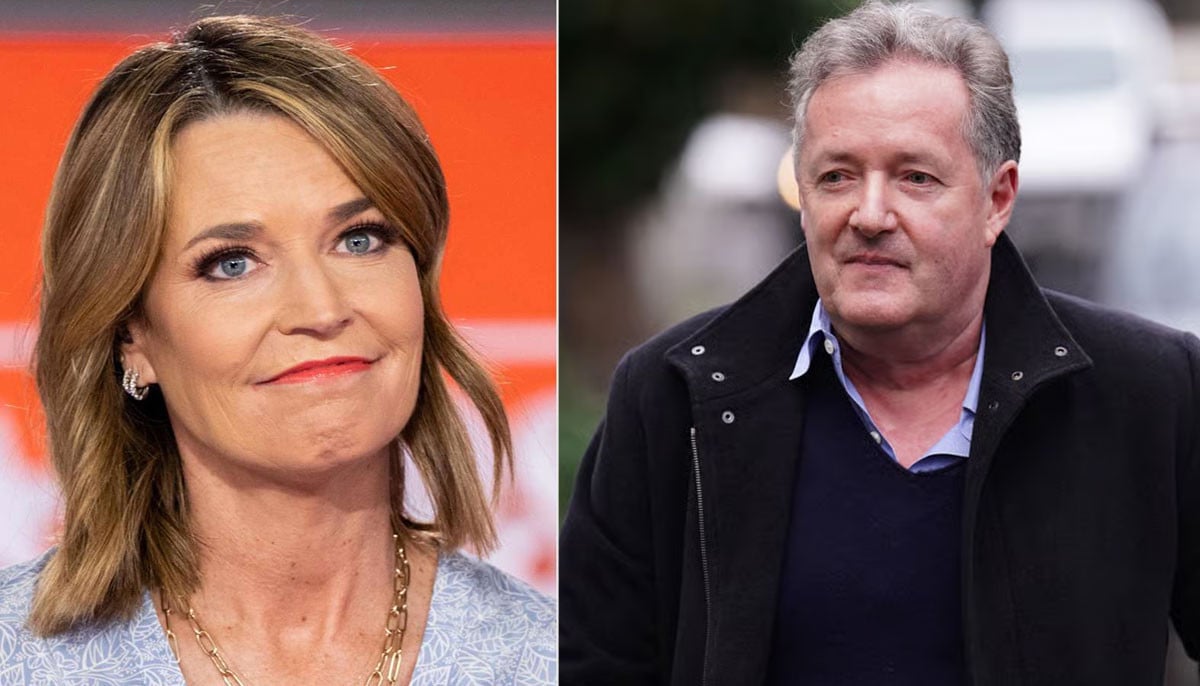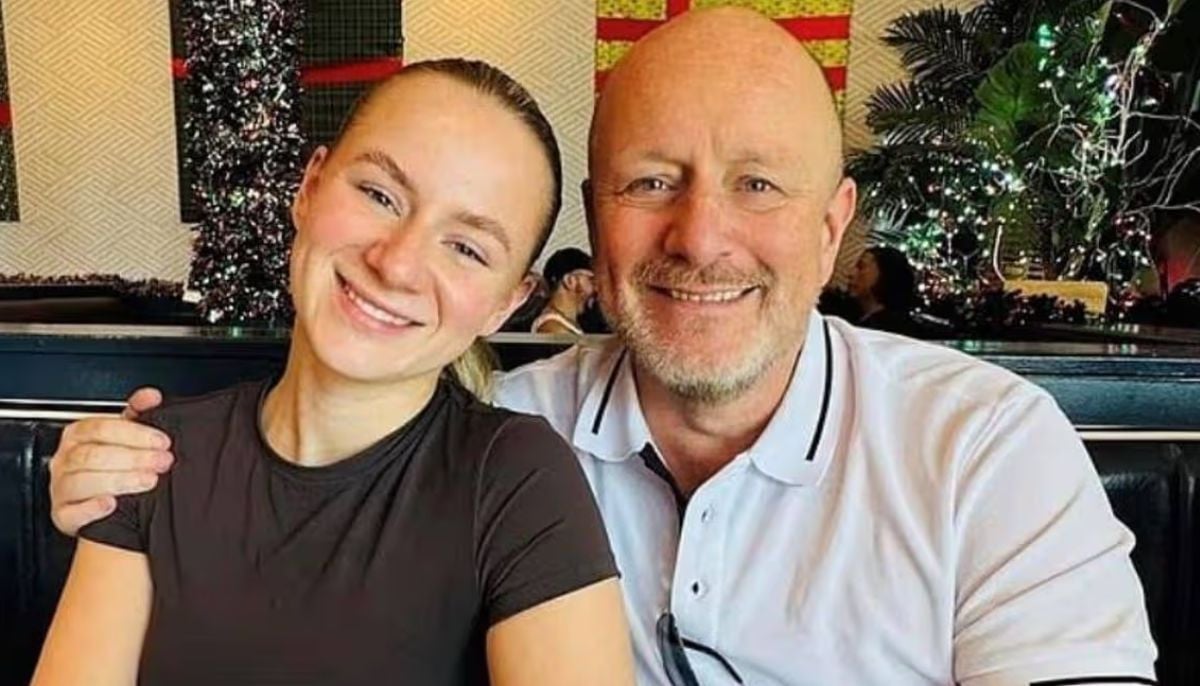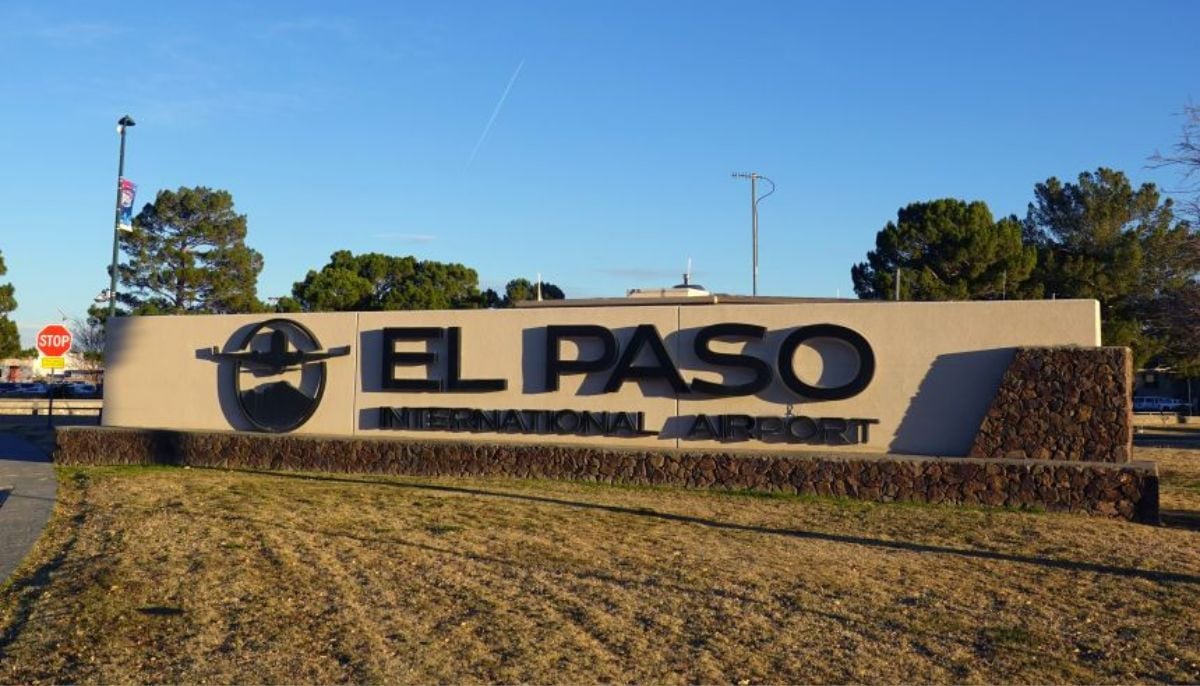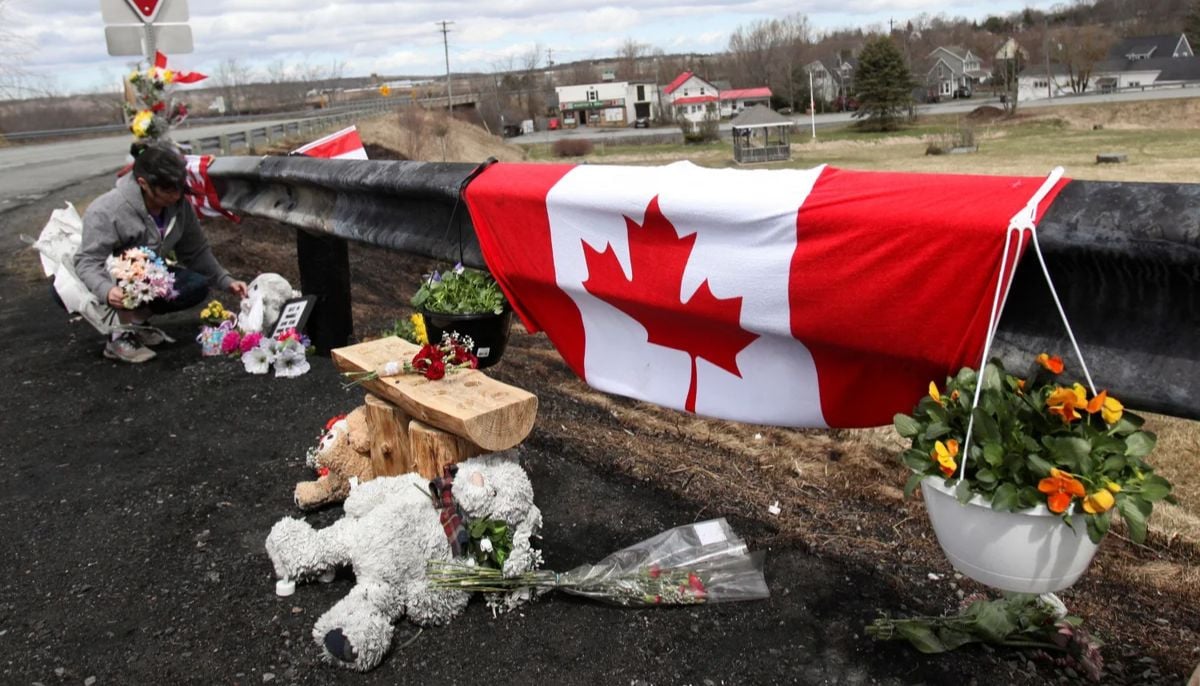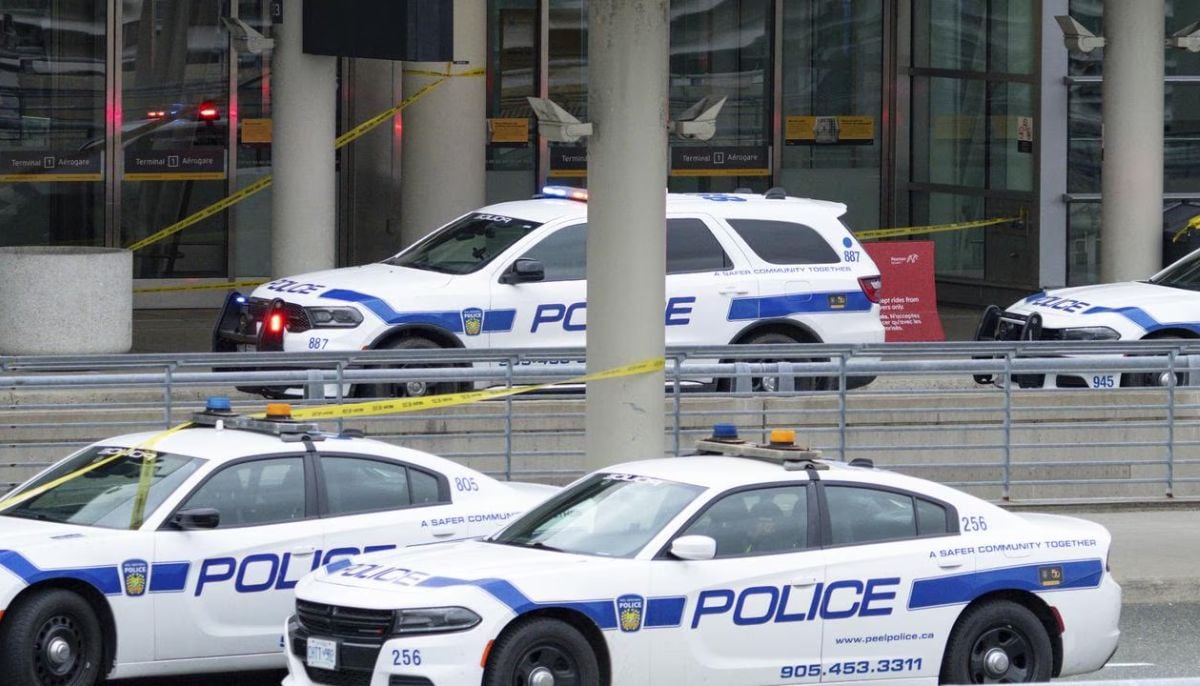Taliban rulers urged to prevent Afghanistan from 'being terror, instability hotspot'
Moscow Format asks Taliban to cooperate against threats of terrorism and drug trafficking emanating from Afghanistan
KAZAN: The Taliban rulers, in a consultative meeting of Afghanistan's neighbouring countries, have been asked to ensure that their soil doesn't become “a terrorism and instability hotspot” — backing the concerns repeatedly voiced by Pakistan.
The call was included in a declaration of the Moscow Format Consultations on Afghanistan, which ended a day earlier after the conclusion of its fifth meeting in Russia's Kazan city with participation by special representatives and senior officials from China, India, Iran, Kazakhstan, Kyrgyzstan, Pakistan, Russia, Turkmenistan and Uzbekistan.
Afghanistan Foreign Minister Amir Khan Muttaqi represented the Taliban government in the meeting, while Saudi Arabia, Qatar, the United Arab Emirates and Türkiye's representatives arrived in the consultations as guests of honour.
In a statement released by the Russian Foreign Ministry, the parties noted with concern the difficult security situation in Afghanistan due to the intensification of the activities of terrorist groups, primarily Daesh.
While appreciating the current Afghan authorities for their "serious" fight against Daesh, the participants urged them to do the same against all terrorist groups.
They also called on the current Afghan authorities to take effective measures to dismantle, eliminate and prevent the placement of all sorts of terrorist groups based in Afghanistan and to prevent the country from being a terrorism and instability hotspot and spreading to the regional states.
The meeting stressed the Taliban rulers to step up cooperation with the regional countries in the fight against the threats of terrorism and drug trafficking emanating from the Afghan territory — a demand Pakistan has been making amid a sharp rise in militancy carried out by banned outfit Tehreek-e-Taliban Pakistan (TTP).
“Most participants stressed their opposition to the support for terrorism in Afghanistan by external forces,” the statement said.
Responsible Afghan govt
The countries regretted that there had been no progress in forming a truly inclusive government in Afghanistan, reflecting the interests of all ethno-political groups of the country.
Despite the appointment of some individual representatives of various Afghan ethnicities to the Kabul administration, the parties observed no political pluralism in it.
They urged the Kabul authorities to establish a practical, outcome-oriented dialogue with the representatives of alternative ethno-political groups to complete the process of peaceful settlement and forge a balanced, more broad-based, inclusive, accountable and responsible government in Afghanistan.
In order to improve the welfare of the Afghan people, prevent their further migration and provide conditions for the return of the refugees, the Taliban set-up was urged to provide the necessary conditions.
Need for women's education highlighted
The participants also spoke out for respect of fundamental rights and freedoms in Afghanistan, including equal rights to work, education and justice, without distinction as to gender, ethnicity or religion.
While expressing concern about restrictions imposed on women's employment and girls' education, the meeting urged Afghanistan rulers to promote modern education in the schools conforming to international standards.
Parties urge humanitarian assistance to Afghanistan
The Moscow Format urged the Western nations, which it held responsible for the current crisis in the war-torn country, to recognise and shoulder their responsibility for post-conflict reconstruction of the country, unfreeze Afghan assets and lift unilateral sanctions, immediately.
The parties also advocated for Afghanistan as an independent, united and peaceful state.
They underscored the unacceptability of the deployment of military infrastructure facilities of third countries in Afghanistan and its neighbouring states under any pretext.
Without directly mentioning the US, the parties reaffirmed the opposition to attempts at politicising humanitarian assistance and highlighted the importance of continuing humanitarian assistance to Afghanistan.
-
Nancy Guthrie abduction: Piers Morgan reacts to 'massive breakthrough' in baffling case
-
Texas father guns down daughter after heated Trump argument
-
FAA shuts down El Paso Airport, flights suspended for 10 days: Here’s why
-
Teacher abused children worldwide for 55 years, kept USB log of assaults
-
Savannah Guthrie expresses fresh hope as person detained for questioning over kidnapping of Nancy
-
Tumbler Ridge school shooting among Canada’s deadliest — Here’s where it ranks
-
Suspect detained as authorities probe Nancy Guthrie’s abduction
-
Tumbler Ridge tragedy: Nine killed, 25 injured after school shooting in British Columbia
